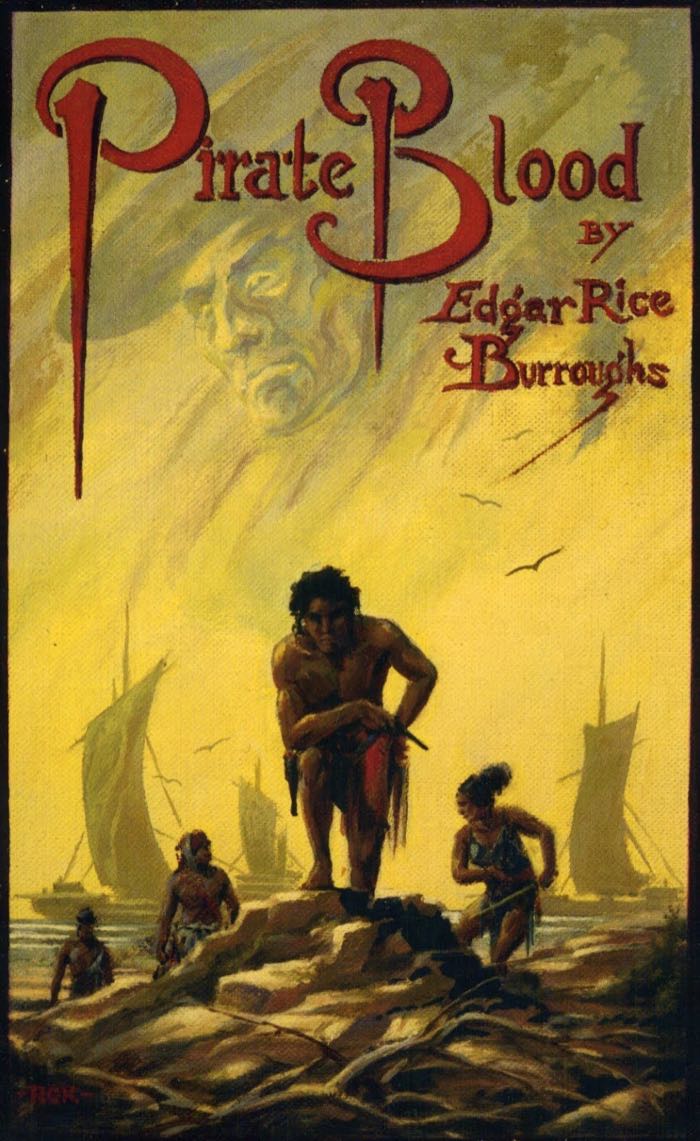Pirate Blood
Reviewed date: 2009 Mar 28
Rating: 3
160 pages
Well now! A Burroughs novel that isn't all about honor and saving the maiden in distress. No, Johnny Lafitte has piracy in his blood, and a pirate he becomes. After a blimp accident leaves him stranded on a remote island in the Pacific, Johnny falls in with a pirate outfit run by a man called the Vulture. Johnny becomes the Vulture's second-in-command, but angers the Vulture by conducting an affair with his favorite woman, La Diablesa. Johnny escapes and joins the Vulture's rival, a pirate outfit run by a brute known as the Portuguese. Johnny manipulates the Portuguese into attacking the Vulture. Both the Vulture and the Portuguese end up dead, and Johnny rules the seas.
The central theory in Pirate Blood is nature vs. nurture: does a person's family history control his destiny? Johnny Lafitte is descended from Jean Lafitte, a great pirate. His high school love, Daisy Juke, comes from a family full of prostitutes and drug addicts. Johnny remarks to his friend Frank that he hopes a person's blood doesn't determine his life. But true to his blood, Johnny turns cutthroat the first opportunity he gets. Daisy gets involved in a drug ring, runs overseas with a China man, and ends up as the most famous prostitute in Singapore. Egads! And this is Burroughs? Johnny finally accepts that piracy is his destiny. He still can't help but justify his actions to assuage his guilty conscience.
I believe that I was born a pirate; and that accident provided the means by which I might express my individuality, fulfill my destiny. I have done so without shame and without hypocrisy. Other men are born pirates, but they go into business or the professions. I hold them in contempt. At least I shall not feel it incumbent upon me in my old age to give away bright new dimes to assuage the flagellation of my conscience.
I have killed men, but I have never sent their widows large bills for my operations. I have robbed people of their all, but I have mercifully put them out of their misery that they might not live to bemoan their losses or suffer the deprivations and reproaches of poverty. In my own way I too am a philanthropist and a benefactor of the human race.
The manuscript for Pirate Blood was found after Burroughs died. He wrote it in 1932 but never got it published. He probably intended to rewrite portions of it, because the action is accelerated in the second half of the novel. Several loose ends are left unresolved, most particularly the question of La Diablesa's pregnancy.
